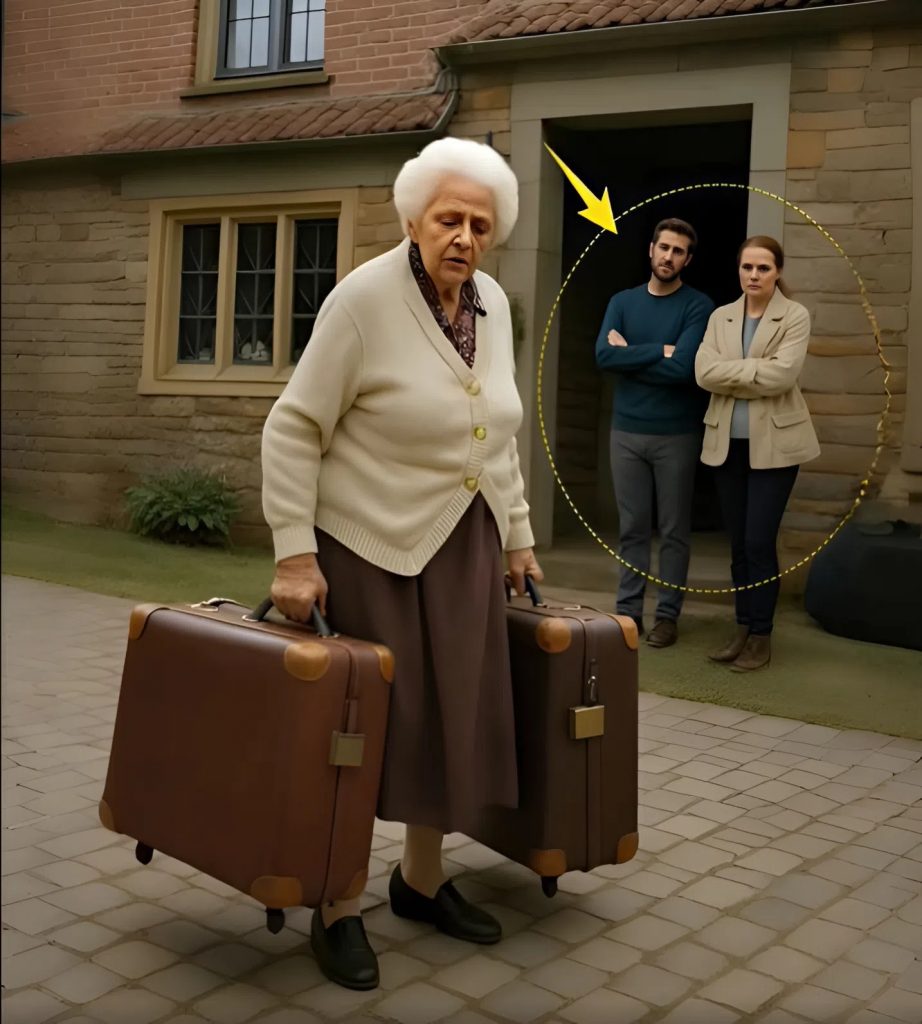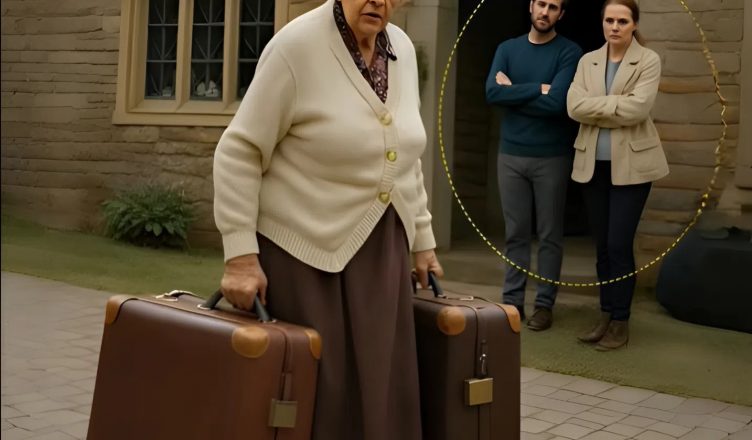Their eyes said more than words ever could. In a single morning glance, eight years of care, devotion, and hope were erased.
She had been living in her daughter’s home. She loved them. She helped.
And then — she became unnecessary.
After her husband passed away, her daughter had said with warmth:
— Come live with us, Mom. We’ll all be happy together.
And she believed her.
In the beginning, it felt right
When she moved into her daughter’s house, she brought more than luggage. She brought her soul. The same morning routines, the same gentle hands that once raised Hélène. The same soft footsteps so as not to wake the children.
She didn’t intrude. She did her best to help. A quiet presence — cooking, cleaning, babysitting. Seemingly invisible, and seemingly appreciated.
But as the years went by, the atmosphere shifted.
Not suddenly. Subtly.
Her son-in-law began to “accidentally” avoid the kitchen when she was there. Hélène’s tone grew shorter, cooler. Annoyance crept into her voice over the smallest things.
Sometimes — over nothing at all.
But the mother chose not to see it.
An inconvenient kind of love
She told herself it was just stress. Children, bills, work… understandable, right?
She forgave everything. Silently.

Until one morning, when she stepped into the kitchen and caught a glance — not of love, not even of irritation — but indifference. Her son-in-law looked away. Her daughter looked through her.
It wasn’t anger. It was worse: detachment.
As if she were no longer a person, but a misplaced piece of furniture.
She sat down, as always, but for the first time, felt like a guest.
Even the bread she baked with care remained untouched.
The question that was never asked
That evening, she didn’t ask:
— Am I in the way?
Because she knew they wouldn’t say “yes.” But they wouldn’t say “no” either.
Because the answer had already been given — without words.
She began packing a few days later.
No drama. No accusations.
The grandchildren asked:
— Grandma, where are you going?
She smiled and said:
— Just for a little while. I’ll be back soon.
But no one asked if that was true.
No one tried to stop her.
The silence that remained
Now she lives alone, in a small flat on the edge of town.
The silence she once longed for after her husband’s death is now unbearable.
She still cooks for three. Out of habit.
Then she quietly puts two plates away.
And watches the window.
No one comes.
Once a month, Hélène sends a photo of the kids. No message.
Just a picture.
As if that’s enough.
As if that fills the emptiness.
Why does this happen?
Stories like this are everywhere.
Parents who gave everything — and became “a burden.”
Not out of malice. But because they exist.
Because they speak, remember, love — and take up space.
Young families want freedom. That’s natural.
But what about those who stood by them before that family even began?
What do we do with their love? Their presence? Their aging hands?
A different kind of ending
This isn’t just about being “kicked out.”
It’s about how we say thank you.
Not with flowers on Mother’s Day.
But with a place at the table.
Not with texts.
But with time, warmth, and belonging.
She doesn’t expect praise.
But she still bakes bread for three.
Just in case someone comes back.
**If this story reminds you of your own mother — don’t wait until she starts packing. Call her. Visit. Ask what she had for breakfast. And more than anything — tell her: You still belong here
